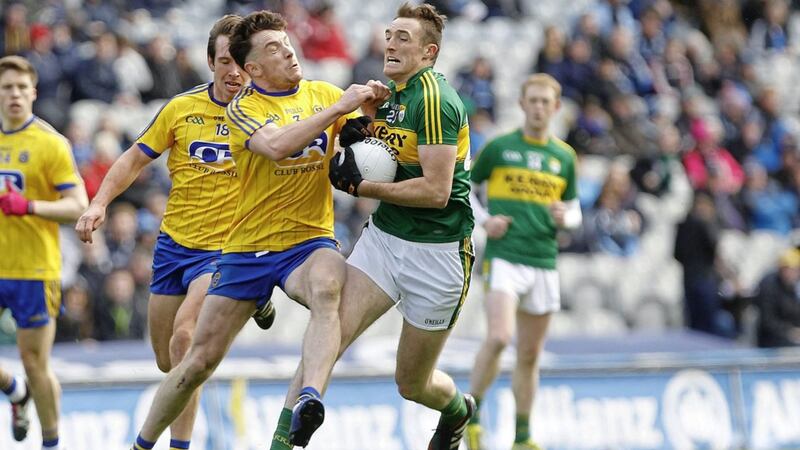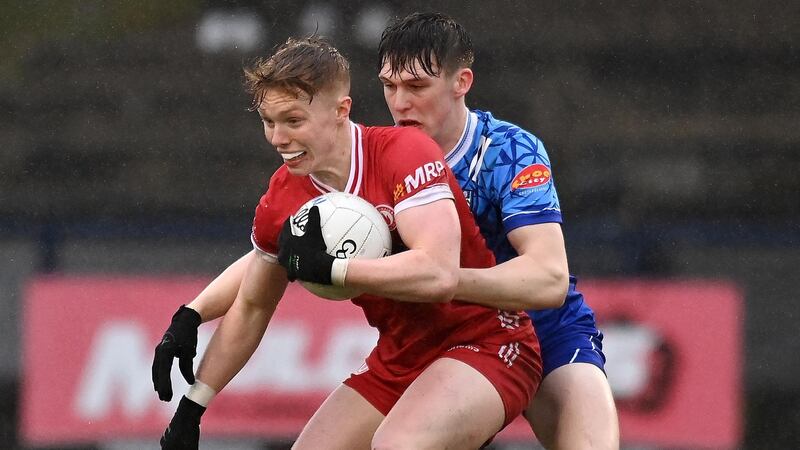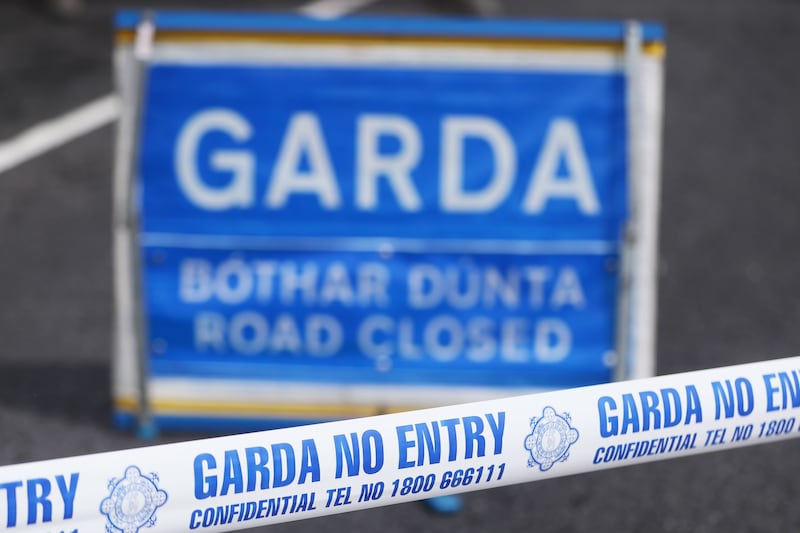A few days ago the name Brendan O'Sullivan would have meant little to most people outside his own county. Invited to say where he was from, many might have hazarded a guess at Cork.
For now, though, he's probably the best-known Kerry footballer never to have appeared in the All-Ireland Senior Football Championship, never mind one actually winning the competition multiple times as they often do in the Kingdom.
The Valentia Young Islander clubman is at the centre of the latest anti-doping controversy in Irish sport.
His name and picture have been widely publicised after it was revealed at the weekend that he tested positive for the stimulant methylhexaneamine ('MHA') after playing as a substitute in the Division One League Final last year.
MHA is the substance that cost the great Usain Bolt an Olympic gold medal due to relay team-mate Nesta Carter's positive test from the 2008 Olympics in the 4 x 100m.
There's a large degree of sympathy around for O'Sullivan, on the basis that Sport Ireland has accepted it was a 'contaminated product' case and that the player 'bore no significant fault or negligence'.
Bizarrely, he has served two separate suspensions, albeit that this was caused due to the matter being dragged on by the appeals process.
Brendan O'Sullivan sat out 11 weeks of the season last year, at the height of the Championship campaign, from May 13 to July 28.
He then served a further 10-week suspension this year, commencing on February 26, concluding on May 5.
To compound the confusion, the Irish Sport Anti-Doping Disciplinary Panel imposed the period of ineligibility of 21 weeks on O'Sullivan following a hearing on March 30 this year.
Although accepting that athletes have a right to appeal and are entitled to due process, the fact that O'Sullivan's name and suspension only became public almost two months later leads to cries of 'cover-up'.
It's entirely understandable that Kerry GAA will do its best to protect and defend one of its own.
The Gaelic Players' Association no doubt has a similar attitude and approach.
O'Sullivan made a mistake. All of us do that, in all walks of life.
'Let who is without sin cast the first stone'.
Some may even argue that he did little or nothing wrong.
Certainly Sport Ireland 'accepted that it was a contaminated product case, that Mr O'Sullivan bore no significant fault or negligence and reduced the applicable sanction to seven months.'
Yet O'Sullivan did make a mistake.
It wasn't about what he took - but that he took anything at all.
Sport Ireland issued a somewhat confusing statement detailing the decisions of the Irish Sport Anti-Doping Disciplinary Panel and the GAA Anti-Doping Committee and O'Sullivan's disagreement with and appeal against their respective decisions.
However, one thing was very clear when you click the link provided in that release to follow Sport Ireland's 'risk minimisation guidelines':
'Sport Ireland recommends against the use of sports supplements…'
Slightly further down it declares:'There are no guarantees that any dietary supplements are safe.'
Unfortunately, before both those fairly stark comments there are some rather mealy-mouthed remarks, starting off with: 'Sports supplements are commonly used by athletes in the hope of maximising the benefits of participating in sport. Understandably sports people can be confused about the issues around sports supplements.'
Those sentences smack too much of 'get-out clauses'.
Most of us are well aware of why anyone uses sports supplements, i.e. to build muscle mass more quickly than normal training and diet does, not 'in the hope of maximising the benefits of participating in sport'.
There would be nothing to get 'confused about' if athletes simply avoided sports supplements.
That Sport Ireland advice then states that 'It is important to remember that there are risks associated with supplement use' and continues by saying that it 'recommends against the use of sports supplements for the following reasons:
'We believe that a correct dietary and nutritional regime will provide all the potential benefits of sports supplements.
'We believe that, given the World Anti-Doping Agency (WADA) principle of strict liability, elite athletes are opening up the possibility of inadvertent positive tests by taking supplements.
'We believe it is inappropriate for any junior athlete or player to be taking supplements that could have an impact on their physical development.'
There follows that clear message 'There are no guarantees that any dietary supplements are safe', before suggesting seeking 'nutrition advice from a professional sports dietician', assessing the risk of any supplement – and warning that the consequences of 'consuming a contaminated product may result in a four-year ban from sport'.
Obviously elite athletes face serious pressures - and temptations to take short-cuts.
In terms of team sports, although we can't say for certain that established stars haven't taken inappropriate supplements, it's more likely to be fringe players doing so.
They are the lads desperately trying to improve themselves, gain that extra muscle and/or extra speed, gain some extra edge to lift them onto the panel or onto the team. Marginal gains, you might say.
The supplements problem is far from marginal, though, as evidenced by the widespread use of supplements.
More than a decade ago, a friend of mine – an absolutely amateur sportsman – was regularly imbibing a supplement that I jokingly labelled 'Strawberry soup', his aim being to bulk up.
When I suggested to him that it appeared to be adversely affecting his mood, his highly aggressive response merely confirmed to me that the substance wasn't good for him.
GAA players are treading a very fine line between being amateur sportspeople facing professional demands in terms of their preparation and training.
At present the GAA's elite aren't subject to home testing – and unannounced home testing – as with athletes in many other sports, but given that they receive government grants there may be more clamour for a re-think.
The GAA and GPA would understandably want to avoid that.
The safest way, purely and simply, for GAA players to avoid failed tests is to steer clear of all supplements.








